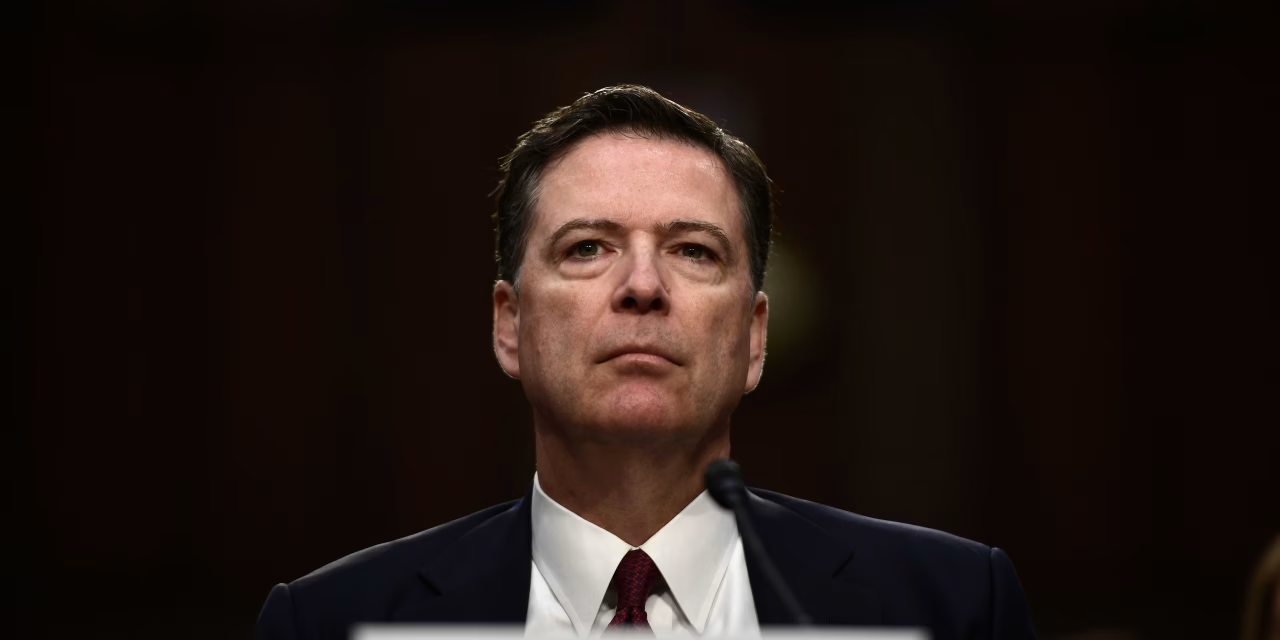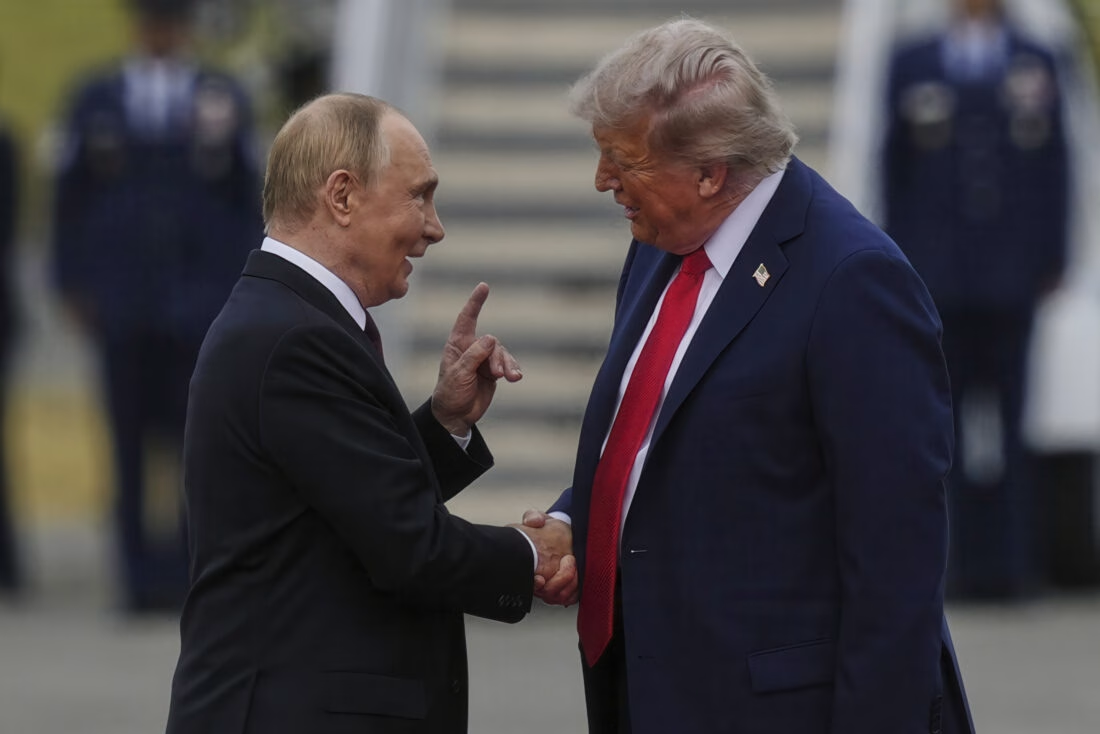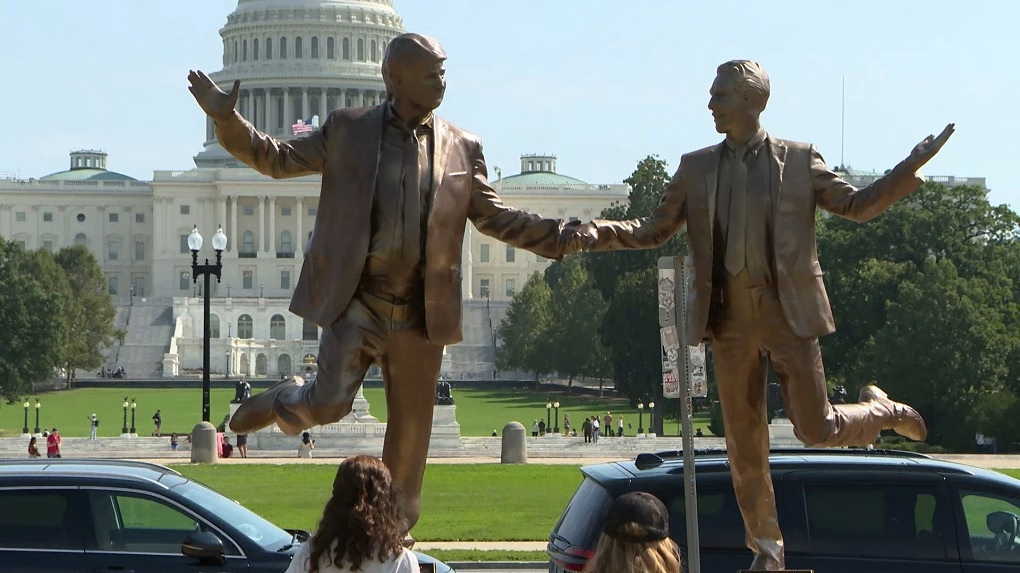By Don Terry | Tuesday, September 30, 2025 | 7 min read
For nearly a decade, the saga of James Comey has been tied to one word: Russia. From the 2016 election through the Trump presidency and beyond, the FBI’s former director has carried that shadow. Every headline, every congressional hearing, every tweet from Donald Trump seemed to circle back to the same subject—Russian interference. So when news broke that Comey had finally been indicted, the natural assumption was that the case would center on Russia. After all, Trump himself has railed endlessly about what he called the “witch hunt,” claiming that the Russia investigation was a fraudulent political attack designed to weaken his presidency.
But that’s not what happened. The charges against Comey have nothing to do with Russian meddling. They’re about something else entirely—lying to Congress. In fact, a grand jury returned two counts against him: making a false statement and obstructing a congressional proceeding. A third proposed charge was tossed out. On paper, it sounds almost anticlimactic. But the implications are enormous.
The charges trace back to September 2020, when Comey appeared before the Senate years after Trump had fired him. Lawmakers grilled him over the FBI’s handling of two hot-button investigations from 2016: Russian election interference and Hillary Clinton’s use of a private email server. Both cases had drawn Trump’s fury, and both had defined Comey’s reputation. What prosecutors now claim is that in that high-profile hearing, Comey wasn’t simply defending his decisions—he was lying.
The first count comes from a tense exchange with Sen. Ted Cruz. Cruz pressed Comey about whether he had ever authorized FBI subordinates to serve as anonymous sources for reporters. Comey denied it flatly. Cruz then invoked Andrew McCabe, Comey’s deputy at the time, who had publicly said he leaked to the press and that Comey was aware. Someone had to be lying. Comey doubled down, insisting his testimony was the truth. Now prosecutors say it wasn’t—that he knowingly misled lawmakers.
The second count is broader. It accuses Comey of obstructing a congressional proceeding by making false and misleading statements intended to derail the investigation. The indictment doesn’t spell out exactly which words triggered the charge, but the message is clear: prosecutors believe Comey’s testimony was designed not to clarify but to obstruct.
The grand jury, however, rejected one of the charges. That count revolved around a question from Sen. Lindsey Graham, who asked whether Comey remembered intelligence suggesting Hillary Clinton’s campaign planned to stir up a Russia scandal to distract from her email controversy. Comey answered that it “didn’t ring a bell.” Prosecutors alleged that was false, but jurors didn’t buy it. It’s rare for a federal grand jury to deny prosecutors an indictment, and the rejection hints that not every allegation was airtight.
For Trump, nuance doesn’t matter. He has long painted Comey as the villain of his presidency, the man who let the Russia investigation spiral out of control. Even if the indictment is technically about congressional testimony, Trump will frame it as proof of something bigger: that the people behind the Russia probe were dishonest, corrupt, and political. Comey’s legal troubles give Trump the ammunition he has always wanted.
Comey, for his part, insists he’s innocent. He has said publicly that he stands by his testimony and intends to clear his name. His defense is straightforward: whatever he told Congress in 2020 reflected his understanding of events at the time. Memory lapses, differences of interpretation, and conflicting accounts are normal in Washington. But prosecutors aren’t treating this as a memory issue—they’re calling it perjury.
Attorney General Pam Bondi, announcing the indictment, said it reflects the Justice Department’s commitment to holding powerful figures accountable. Nobody, she emphasized, should be above the law when it comes to testifying before Congress. To some, that statement resonates as overdue justice. To others, it reeks of political revenge. The truth probably lies somewhere in between.
The larger question is what this moment means for America’s institutions. The FBI, Congress, and the Justice Department have all been dragged through years of partisan warfare. Each investigation, each hearing, and each indictment now feels like part of a larger political chess match. The Comey charges, while legally about lying to Congress, cannot be separated from the context of the Russia saga. Even if prosecutors insist otherwise, the public will inevitably connect the dots.
And that’s the paradox here. These charges are explicitly not about Russia. Yet Russia is the reason anyone cares. Without that long, bitter history—the 2016 election, Trump’s repeated accusations, the endless headlines—this indictment would be just another Washington scandal. Instead, it has become another chapter in a story that refuses to die.
If Comey is convicted, the implications will stretch far beyond him. It will reinforce the idea that truthfulness before Congress is not optional, even for the most powerful officials. It could also feed Trump’s narrative that the FBI leadership was corrupt, giving him fresh ammunition as he returns to the political stage. If Comey is acquitted, the opposite may happen: the case could be seen as a politically motivated overreach that failed in spectacular fashion.
No matter how the case ends, its impact won’t stay confined to the courtroom. The outcome will ripple through politics, where every development is bent into a weapon. Trump will hold it up as vindication, proof that his instincts about Comey were always right. His opponents will call it persecution, another example of Trump’s habit of punishing those who crossed him. And the press, chasing headlines, risks missing the deeper reality: this case isn’t about Russian interference at all. It’s about how power is being used—and who it’s being used against.
From the start, Trump has treated the Justice Department less like an impartial institution and more like a tool for settling scores. Comey’s indictment fits neatly into that pattern. If Trump’s real concern were Russian interference, the charges would reflect that—Comey could have been accused of lying about details of the Russia probe itself. But that’s not what happened. Instead, prosecutors zeroed in on congressional testimony, technical statements under oath that may or may not stand up in court but serve a much clearer political purpose.
That purpose is to brand Comey, once and for all, as untrustworthy. To strip him of credibility. To ensure that when people hear his name, they don’t think of the Russia investigation, or of his clashes with Trump over principle, but of the label “indicted.” In politics, perception often matters more than the verdict. Even if Comey beats the charges, the stain remains.
This is the cycle Washington has been trapped in since 2016: scandals feeding indictments, indictments fueling headlines, headlines driving more division. Each side claims victory, each side claims victimhood, and institutions that are supposed to stand above the political fray sink deeper into it. The Comey case, stripped of its legal jargon, is less about perjury and more about politics. It shows how far the fight has gone, and how little space is left for anything that looks like fairness.
James Comey once said his role as FBI director was to “protect the credibility of the institution.” Now, years after his firing, he’s become a symbol of just how fragile that credibility has become. His fate will be decided in court, but the bigger story is already written: in today’s Washington, truth is less important than the fight over who controls the narrative.
James Comey, once again, is at the center of that storm. This time, though, it isn’t Russia pulling him under. It’s Congress, and the unforgiving weight of his own sworn words.
Mexico Is Not the Origin of the Drug Trade—Europe and Big Pharma Were There First
Trump’s Russia ‘Paper Tiger’ Remark Steals the Spotlight as 2025’s Best Punchline
Nexstar, Sinclair Refuse to Broadcast ‘Jimmy Kimmel Live!’ Following ABC Return
Is Trump Correct to Designate Antifa but Not the KKK or Neo-Nazis as Terrorist Organizations?
America Must Mourn All Victims of Gun Violence, From the Forgotten to the Famous Like Charlie Kirk






